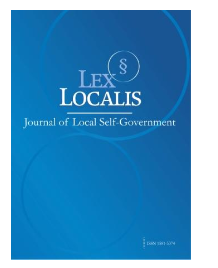MODELING QUALITY HUMAN RESOURCES EMPOWERMENT TO DRIVE GREEN AND SUSTAINABLE ECONOMIC GROWTH IN WEST JAVA
DOI:
https://doi.org/10.52152/801848Keywords:
Human Resource Empowerment, Green Economy, Sustainable Development, GREEN SYNERGY Model, West Java.Abstract
The transition to a green and sustainable economy in West Java requires the support of qualified and competent Human Resources (HR) in accordance with sustainable principles. This study aims to model an effective HR empowerment strategy to drive this growth. Using a qualitative case study approach, data were collected through in-depth interviews with 30 key informants from 10 West Java regional government agencies and analysis of related policy documents. The study revealed that existing HR empowerment programs remain fragmented, poorly integrated, and face a competency gap with the needs of the green sector. A SWOT analysis identified strengths in political commitment and agency networks, but weaknesses in coordination and curriculum. Based on the findings, the SINERGI HIJAU (Integrative Synergy of Human Resources Empowerment for a Green Economy) Model was formulated as a collaborative framework. This model emphasizes the role of BAPPEDA as a coordinator, the development of a standardized Green Core Competency Curriculum, the active involvement of the industrial sector and MSMEs, the provision of incentives, and a robust monitoring and evaluation system. This study concludes that implementing this model can integrate fragmented policies and bridge competency gaps, thereby accelerating the realization of green and sustainable economic growth in West Java. Policy recommendations focus on the formation of a task force, curriculum development, and the creation of an incentive system.
Downloads
Published
Issue
Section
License
Copyright (c) 2025 Lex localis - Journal of Local Self-Government

This work is licensed under a Creative Commons Attribution-NonCommercial-NoDerivatives 4.0 International License.








